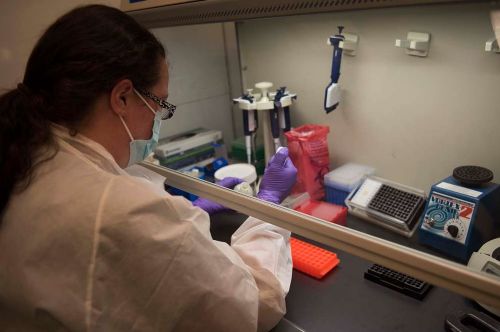

Forensic science plays a crucial role in today’s criminal justice system. Recent advancements have reshaped how evidence is gathered, analyzed, and presented in court. These changes have significant implications for criminal defense cases. Forensic tools, like DNA testing and digital forensics, provide more precise evidence. However, they also raise questions about accuracy and reliability. As technology evolves, it becomes vital for legal professionals to stay informed. Law firms, such as Snow Legal Group, must adapt to these developments to ensure fair representation for their clients. By understanding the latest forensic techniques, defense teams can challenge evidence more effectively. They can also identify potential flaws or biases in forensic results. This approach can make a difference in the outcome of a case. As we explore these advancements, we will see how they impact both the pursuit of justice and the protection of individual rights.
The Evolution of DNA Testing
DNA testing has become a cornerstone in forensic science. Originally used to confirm guilt, it now plays a crucial role in proving innocence as well. With more refined methods, DNA can be extracted from even the smallest samples. This enhanced sensitivity has led to breakthroughs in cold cases.
The National Institute of Justice reports that upgraded DNA analysis increases the chance of identifying or excluding suspects. Still, questions about contamination, sample handling, and interpretation persist. Defense attorneys must scrutinize the chain of custody and laboratory practices to ensure integrity. These steps help maintain balance in the justice system.
Digital Forensics: New Avenues and Challenges
Digital forensics is an area growing at an unprecedented rate. With the rise of technology, digital evidence—from emails to social media posts—has become commonplace. Experts extract and analyze data from electronic devices to uncover hidden information.
This new frontier poses challenges. Data can be easily manipulated, deleted, or encrypted. Defense teams need to question the methods used for data retrieval and the context of digital evidence. They must ensure that the evidence is both relevant and authentic. This diligence is necessary to prevent wrongful convictions based on incomplete or misleading digital trails.
Forensic Psychology: Understanding Human Behavior
Forensic psychology adds another dimension to criminal defense. By examining the psychological aspects of behavior, experts provide insights into a defendant’s state of mind. This information can influence the assessment of intent and responsibility.
Psychological evaluations require rigorous standards to avoid bias. Defense attorneys should seek qualified professionals with experience in forensic settings. By doing so, they strengthen their case and promote a fair trial process.
Comparing Traditional vs. Modern Forensic Methods
| ASPECT | TRADITIONAL METHODS | MODERN METHODS |
| DNA Analysis | Limited to large samples | Effective with small samples |
| Evidence Storage | Physical archives | Digital databases |
| Data Retrieval | Manual processes | Automated and precise |
This table shows the evolution from traditional to modern methods. The improvements in precision and efficiency are evident. However, each advancement brings new challenges that require careful consideration.
Implications for Criminal Defense
The impact of forensic science on criminal defense is profound. Understanding these techniques allows defense teams to contest evidence effectively. They can uncover procedural errors, question expert findings, and ensure due process.
Forensic advancements demand continuous education and adaptation. Defense attorneys should engage with ongoing training programs and collaborate with forensic experts. This collaboration enhances their ability to represent clients justly and competently.
The Road Ahead
As forensic science continues to evolve, its role in the courtroom will expand. The integration of new technologies presents both opportunities and challenges. Legal professionals must navigate these changes with vigilance and expertise.
Institutions like the National Institute of Justice offer resources to aid in understanding these advancements. By staying informed, defense teams can adapt to new methodologies and contribute to fair and equitable justice.
In conclusion, the advances in forensic science hold promise for advancing justice. Yet, they also require that all parties involved remain diligent and educated. This commitment ensures that the justice system remains fair and that individual rights are protected.


